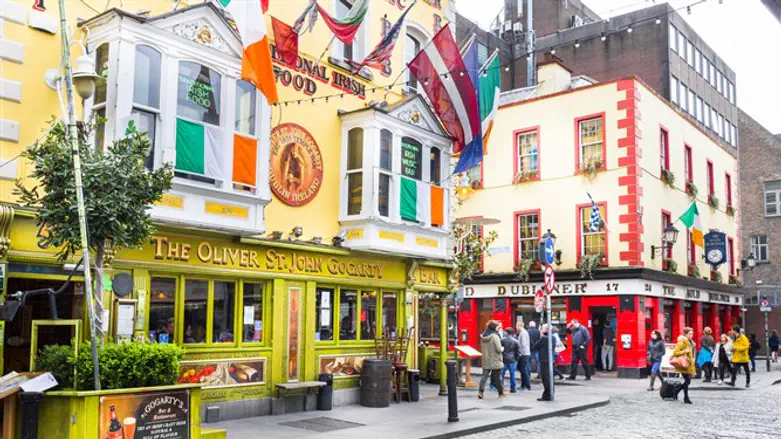
Following the release of a report on anti-Semitism in Ireland, the chair of the Jewish Representative Council of Ireland Maurice Cohen is calling for action on behalf of the Irish government.
“Following the publication of David Collier’s excellent, comprehensive report into anti-Semitism in Ireland, the Jewish Representative Council of Ireland urges all political parties, as well as both Houses of the Oireachtas to immediately adopt the IHRA definition of anti-Semitism to which the government is already a European signatory. While this IHRA definition is non-binding, it importantly flags anti-Semitic behavior,” said Cohen.
“We further call on the government to immediately appoint an envoy on anti-Semitism to the European Commission, as requested by the European Commission several years ago.”
He added: “On Monday 47 countries signed a UNHRC pledge to fight anti-Semitism. So far Ireland has not signed this pledge. The government should do so without further delay.”
Cohen called the need for the anti-Semitism pledge “urgent.”
“They will not be covered in the proposed new legislation on racism,” he said. “Only yesterday, Galway West, Deputy Catherine Connolly and Leas Ceann Comhairle strayed into classic anti-Semitic language by perpetuating the trope of ‘Jewish supremacy.’”
The report on anti-Semitism in Ireland, written by journalist David Collier, details that “in Ireland, anti-Jewish racism spreads within the corridors of power and unlike in the UK or US, appears to be as much driven from the top down as the reverse.”
It states that “some Irish politicians are obsessed about attacking Israel and Zionism, treating it in a manner different from the way they treat all other international issues” and that “Irish politicians share material that is clearly fake and that comes from social media accounts that are blatantly anti-Semitic.”
It continues: “The argument that allegations of anti-Semitism are about stifling ‘criticism of Israel’ is used to shield some of the most horrific anti-Jewish racism imaginable. The problem stretches across politics and NGOs and spills onto the street. There is little political will and few voices to counter it.”
The report notes that it “confirms the findings of previous research. It establishes beyond doubt the indivisibility of anti-Zionist protest and anti-Semitism. Anti-Semitism in all its guises must be called out. It has no place in public discourse.”
It concludes: “Irish Jews are pressured to speak out against Israel, a key part of Jewish identity, in order to be accepted as a human being. Some Jews are scared to wear anything in public that reveals their Jewish identity, Jewish students keep quiet on campus, and those who dare to speak up can become a target for assault or abuse. This is the truth of Ireland today.”
“At the very least, Ireland should adopt the IHRA definition of anti-Semitism and ensure that the message is carried through to every political and educational institution. Ireland should also set standards upon the NGOs that are funded through the state, and make sure that Irish tax money is not being used to promote any form of racism.”
